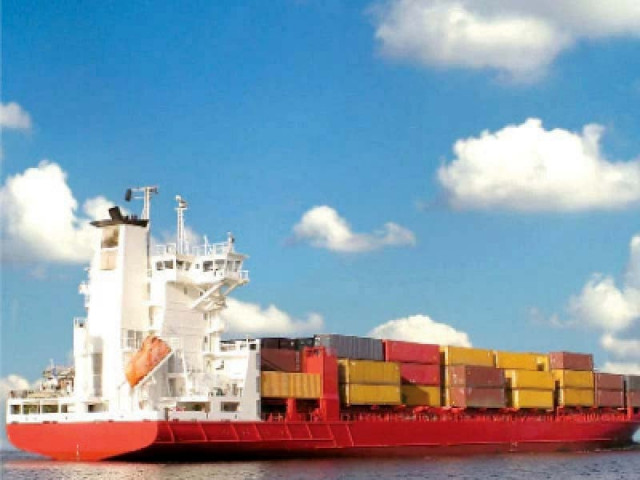Regional links require new push
Better connectivity with region will ramp up economic growth, rein in inflation

The business community has suggested that the policymakers should reframe Pakistan’s regional connectivity push to improve the economy and tackle the back-breaking inflation instead of relying on the traditional old policies.
“Pakistan needs to look at India and China, which despite their border and other disputes have thriving bilateral trade that has now reached $125 billion,” said Usman Kaira, Vice President of Pakistan Businesses Forum (PBF).
Likewise, China and the US have maintained robust trade and investment relationships despite friction in ties over commerce and other issues.
“What Pakistan needs is the change in mindset,” he remarked. “Nothing should be more important for our policymakers than the socio-economic wellbeing of our people, which in turn will strengthen
national security.”
He pointed out that the world was changing rapidly as nations learnt that cooperation and competition could coexist as long as there was mutual benefit.
“Regional connectivity can greatly help in overcoming commodity shortages, address price hikes, especially in relation to the seasonal fruits and vegetables, and manage overall inflation,” said Mukhtar Ahmad Ali, CEO of Centre for Peace and Development
Initiatives (CPDI).
“It will also provide support for manufacturing with easy access to raw material and interdependence between industries across countries. Pipelines like TAPI or the one between Iran and Pakistan will give access to relatively cheaper energy supply due to low transportation costs and potentially long-term contracts.”
Turkmenistan-Afghanistan-Pakistan-India (TAPI) pipeline “is a strategic project which stretches over 1,600 kilometres and is expected to deliver gas from Turkmenistan to three other countries”, said Tahir Abbas, Head of Research
at AHL.
He underscored the need for Pakistan to secure its energy requirement and the most efficient way to do that was to develop the indigenous resources, including dams, Thar coal and renewables.
However, Abbas emphasised, given the 7-8% natural gas depletion rate, strategic projects such as TAPI pipeline should be considered to secure adequate gas supply.
Initially, the capital expenditure on TAPI project was estimated at $10 billion, which included two phases, out of which Pakistan’s commitment was $200 million with share in gas supply of around 1,325 million cubic feet per day (mmcfd).
Read Miftah calls economic stability top govt priority
Prime Minister’s Economic Advisory Council former member Dr Abid Qaiyum Suleri regretted that Pakistan was not able to benefit from regional connectivity because of geopolitical reasons.
Citing an example, he pointed out that the Iran-Pakistan gas pipeline had reached the border on the Iranian side but owing to international sanctions Pakistan could not extend the pipeline. Similarly, “until a stable government is installed in Afghanistan, the TAPI project is technically not feasible”.
“So, regional connectivity from the energy supply perspective is possible theoretically, but not practically,” Suleri remarked.
PBF’s Usman Kaira emphasised that no confidence-building measure was more potent than bilateral trade, which would ease mutual distrust and support countries in addressing the tougher issues jointly.
Listing the benefits of connectivity, he mentioned low transportation costs, availability of road and rail links and socially identical consumer bases, which would provide a clear edge to the trading partners.
“Thus, the economic activity provides our traders access to vast
regional markets.”
He called for adopting a whole new approach to positively engage with all neighbours to tap more opportunities of balanced and mutually beneficial trade and investment in the larger interest of economic security of the people
of Pakistan.
“In due course, the trade and investment ties can become a building block towards durable peace in South Asia.”
The PBF VC believes Pakistan is sitting on a huge trade potential that remains largely untapped. “A favourable trading regime that reduces high costs and removes barriers can open more investment avenues that are critically required for accelerating growth in the country.”
He lamented that South Asian countries had yet to reap the benefits of shared land border.
While Pakistan and India collectively represented 88% of South Asia’s gross domestic product (GDP), trade between the two countries was only valued at a little over $2 billion, which could be as high as $37 billion,
he pointed out.
“It is cheaper for Pakistan to trade with Brazil than with India. Reducing policy barriers such as removing restrictions on trade at the Wagah-Attari border, or aiming for seamless, electronic data interchange at border crossings, will be a major step towards slashing the high cost of trade between Pakistan and India.”
Usman stressed that Pakistan could reframe its connectivity push while also signalling that it was not abandoning China.
Published in The Express Tribune, July 15th, 2022.
Like Business on Facebook, follow @TribuneBiz on Twitter to stay informed and join in the conversation.



















COMMENTS
Comments are moderated and generally will be posted if they are on-topic and not abusive.
For more information, please see our Comments FAQ